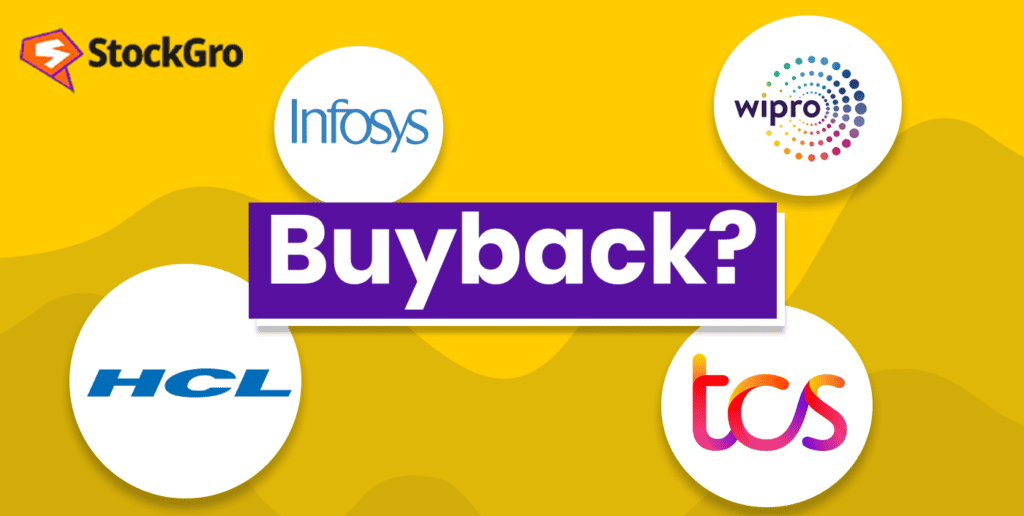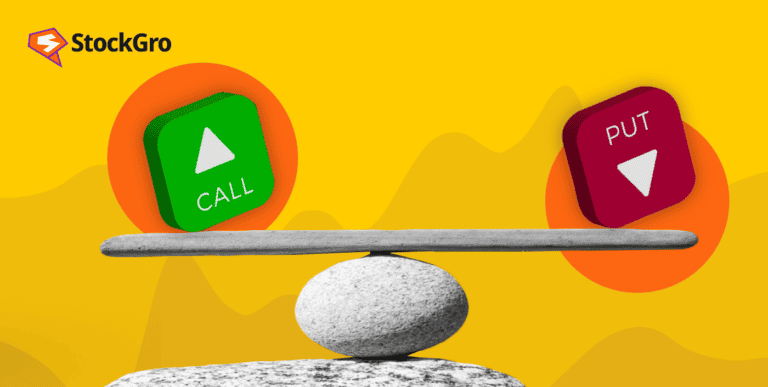
Indian tech major, Tata Consultancy Services (TCS), announced their quarter earnings a week ago with strong revenue growth, margin expansion drives, and a net margin upwards of 18%. However, that’s not all.
TCS also issued a buyback of their stocks (roughly 4,09,63,855 shares) for an aggregate amount somewhere below ₹17,000 crore. Buyback is set to be used at ₹4,150 per share. This is the fifth time that the company has announced that it will buy its own shares back from investors in the public market.
TCS share buybacks in the past
This table outlines recent buybacks from TCS with corresponding buyback share prices and total buyback amount:
| Buyback Date | Buyback %age share | Buyback price (₹) | Buyback amount (₹ cr) |
| Feb. 20, 2017 | 2.85% | 2,850 | 16,000 |
| June 15, 2018 | 1.99% | 2,100 | 16,000 |
| Oct 7, 2020 | 1.42% | 3,000 | 16,000 |
| March 14, 2022 | 1.08% | 4,500 | 18,000 |
What does this mean for investors?
Retail investors have the potential to realise returns between 5% and 17% over the TCS buyback. The buyback price of ₹4,150 is 17.5% higher than the closing price of the stock (₹3,542) on Thursday.
This is a great opportunity for investors who have low buying averages to sell their stock and earn a good return.
At the same time, this announcement offers arbitrage opportunities to traders who could tender their shares in the buyback as well. This is especially true since more than 60 lakh shares, around 15% of the buyback, is reserved for small shareholders with total holdings valued at less than ₹2 lakh.
You may also like: Wipro buyback 2023: All you need to know about repurchasing shares
Why would companies buy their own stock?
A stock buyback is when a company buys back the shares it has issued to shareholders, usually for a premium. This can happen in the public market, or directly from private shareholders.
Companies usually issue stock buybacks for the following reasons:
- They have nothing better to do with their money – Companies that have grown large enough to dominate their respective industries might not have enough avenues to invest their capital compared to a startup. Instead, they choose to buy back their equity both to reduce the number of shareholders and consequently, the obligation for dividends.
- Consolidation of ownership – Less major shareholders mean less people have a say in what the company does with its retained earnings, etc.
- Preserving stock price – This is important because it’s one of the top reasons any company issues a buyback. By reducing the number of shares outstanding in the market, companies tend to drive prices up, preserving or even compensating for any previous dips.
Earnings per share (EPS) also go up, since treasury shares aren’t included in EPS calculations.
TCS shares have faced performance challenges in the last couple of years. They have also underperformed compared to the Nifty due to a wide variety of national and global moving parts. In the last two years, Nifty returned 12% while TCS recorded a 4% downturn.
Other IT buybacks
In the past, other top IT stocks like Wipro, Infosys, and HCL Tech also announced buybacks when TCS did. In 2017, when TCS announced their buyback, so did Infosys at a 20% premium.
Wipro also has a rich history of announcing buybacks for its shareholders. One of its buybacks was announced in September of 2017 at a 23% premium, followed by another in 2019 at 16%. Another buyback was issued around the end of 2020 at a 6% premium over contemporary stock prices.
Should you sell?
A stock buyback from the company is simply a proposal – it is not a requirement. As shareholders, you don’t necessarily have to sell your stocks in a buyback. However, lots of retail investors choose to sell because such propositions come with hefty premiums.
Also Read: What is the reason behind the fall of over 5% in Indian IT stocks?
How do you sell during buybacks?
Most reputable brokers in India have a straightforward way in which you can sign up for a corporate buyback. Most times, all you have to do is visit the broker dashboard, head to corporate actions, and tender your shares for a buyback.
However, just because you’ve floated your shares for the buyback doesn’t mean you’ll get it. With every buyback comes an acceptance ratio – the number of shares the company is willing to repurchase out of the number of shares that are tendered for repurchase.
This means that only some of your tendered shares could be repurchased by the company, depending on hundreds of factors.

